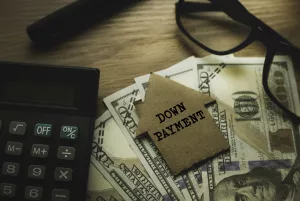Can I afford to buy a home? It’s a question I get asked a lot. If you’re wondering if you can afford to be a homeowner, the answer may well be “yes.” If you’re thinking, “What?!! ME?!!” the thing you have to remember is that Edmonton real estate prices are still reasonable, which could make home ownership a possibility for you and many others, under two conditions: 1) you are willing to do some work and 2) you have reasonable tastes. A lot of people think that home ownership is unattainable, so let’s look at what makes home ownership possible and go from there.
Still on the fence about whether homeownership is for you? Read Renting Vs. Buying a House: Which Is Right for You?

You need to get a few things sorted out before you buy a home. First, you need to have a job. That seems obvious, because you need to pay the mortgage. Second, you should have a down payment. You don’t need one in all cases, but to be careful and on the safe side, you should have one. Third, you’ll need decent credit. And last, you need to have reasonable tastes, which means if you’re not sure you can afford a home, you certainly can’t afford to hunt for a dream home. Here’s how to hit these major marks so you can start planning to stop renting.
A Job
If you want to purchase a condo for $230,000 you’ll need to make about $40,000 per year.
You need a job if you want to buy real estate. It’s pretty simple, really, and you can’t get around it unless you have the cash to buy a house outright So, how much do you need to make? Well if you want to purchase say a condo for $230000 for example (the average price of an Edmonton condo in 2024 is $190,000), you’ll need to have a household income of about $40,000 per year. That means if you’re going to get a place on your own, you’ll need to make about $20 per hour. That’s not too bad, but if you’re not there yet, there’s still hope. Let’s say you only make $15 per hour. That’s minimum wage in Edmonton. Maybe you have a partner who makes $15 per hour, too? Well then you’re making $30 together. If you’re comfortable buying a house with that person, it could be a good place to start. And you can buy a home with anyone you’d be OK living and sharing a major asset with – maybe a sibling, a cousin or a best friend.
A Down Payment
Start saving for that down payment now and it’ll be one less thing to worry about later.
A down payment can actually be optional, but going without one is not a great idea because it’ll cost you more in mortgage interest and fees to the Canadian Mortgage and Housing Corporation (CMHC). It’s not hard to save money. A lot of people will disagree with me on this, but every little bit helps, and almost everyone has some money sneaking out of their bank accounts every month to pay for things that just aren’t essential. All you have to do is open up a savings account and rein those little bits in. If you can’t do this, you probably aren’t ready to be homeowner with a mortgage and repairs to pay for.
Mortgage lenders prefer to see a down payment of at least 5 percent. That means, if you want to buy that average Edmonton condo worth $230,000, you’ll need to save just $11,500. That sounds like a lot to many people, but if you consider that the average Canadian spends $3,800 per year on recreation alone, it’s easy to believe many of us have some room for savings in our budgets. And don’t assume that if your income isn’t high enough right now that you should give up. You might make more money in the future, so start saving for that down payment now and it’ll be one less thing to worry about when you do have the income you need.
A Credit Rating
Credit is one of those things that you rarely see, but it affects you throughout your life. Unfortunately, many people assume that their credit scores are considerably better than they actually are. Like your blood pressure, your credit rating can be the silent killer of your financial dreams – you can’t see it until it’s too late, and by the time you see a professional you may already be in big trouble. But there are some steps you can take to improve your score, perhaps while you’re saving for a down payment.
First of all, you need to actually have credit, so if you don’t have a credit card, line of credit or car loan you need to get one. This may not sound like good financial advice, but it’s the only way to create a record for the bank to show that you’re a responsible borrower. It goes without saying, then, that you have to pay off any loan you have on time. You should also consider reducing your total available credit, avoiding running your credit cards or loans up to the limit and trying to steer clear of applying for many types of credit. Other than that, it just takes time to make sure the credit bureaus know you’re serious about paying your debts. And don’t think that just because your credit is bad, you can’t make it better. Any damage you’ve done is not permanent – it just takes some time to replace that history.
Reasonable Expectations
Stick to homes that are within your price range and adjust your list of wants to fit what you can afford – not the other way around.
(Everyone’s situation is different, so if you need any help figuring out what might be best, please contact me and I’d love to help!)


One thought on “Can I Afford To Buy A Home?”
Comments are closed.